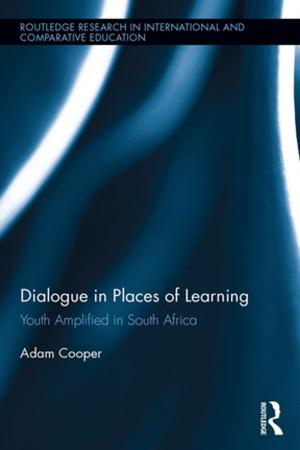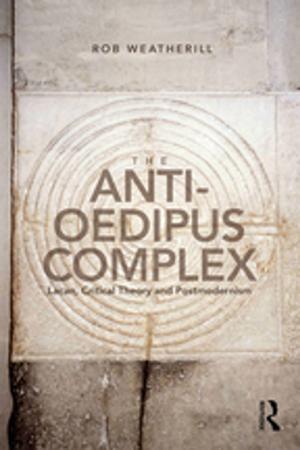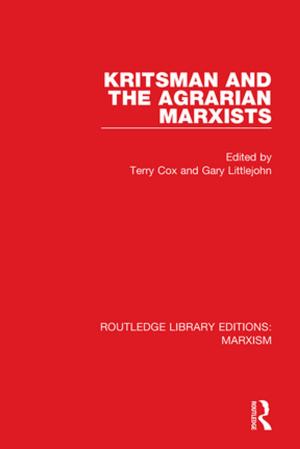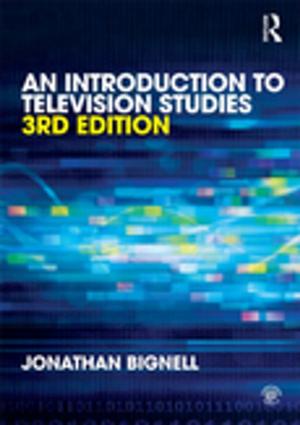| Author: | ISBN: | 9781317746928 | |
| Publisher: | Taylor and Francis | Publication: | September 7, 2015 |
| Imprint: | Routledge | Language: | English |
| Author: | |
| ISBN: | 9781317746928 |
| Publisher: | Taylor and Francis |
| Publication: | September 7, 2015 |
| Imprint: | Routledge |
| Language: | English |
This book joins a developing tradition of ‘practice-based’ conceptions of learning, but with a special interest in foregrounding the materiality of educational processes. It challenges educational views that are preoccupied with developing a particular kind of human subject, and argues that relations among materials – including texts and technologies, embodiment, tools and natural forces - are key to understanding how learning and knowing emerge in collective activity.
To critically examine materiality, the chapter authors draw from orientations associated with actor-network theory, but push forward these conceptions to create an important in-between place of inquiry in sociomaterial/STS studies and education. Most express concerns about visions of education that emphasise output driven learning, performativity, standardisation and representationalist forms of knowledge. They use sociomaterial approaches to make visible the everyday, particular micro-dynamics of education and learning. Their analyses reveal that power relations and the politics that infuse pedagogy are by no means confined to human interests and ideologies, but are created and sustained through materialising processes that are enmeshed with the social and semiotic. Ultimately, these sociomaterial analyses open new directions and vocabularies for reconceptualising what is taken to be pedagogy, where and how pedagogical processes occur, and what effects they have on culture and society.
This book was originally published as a special issue of Pedagogy, Culture & Society.
This book joins a developing tradition of ‘practice-based’ conceptions of learning, but with a special interest in foregrounding the materiality of educational processes. It challenges educational views that are preoccupied with developing a particular kind of human subject, and argues that relations among materials – including texts and technologies, embodiment, tools and natural forces - are key to understanding how learning and knowing emerge in collective activity.
To critically examine materiality, the chapter authors draw from orientations associated with actor-network theory, but push forward these conceptions to create an important in-between place of inquiry in sociomaterial/STS studies and education. Most express concerns about visions of education that emphasise output driven learning, performativity, standardisation and representationalist forms of knowledge. They use sociomaterial approaches to make visible the everyday, particular micro-dynamics of education and learning. Their analyses reveal that power relations and the politics that infuse pedagogy are by no means confined to human interests and ideologies, but are created and sustained through materialising processes that are enmeshed with the social and semiotic. Ultimately, these sociomaterial analyses open new directions and vocabularies for reconceptualising what is taken to be pedagogy, where and how pedagogical processes occur, and what effects they have on culture and society.
This book was originally published as a special issue of Pedagogy, Culture & Society.















